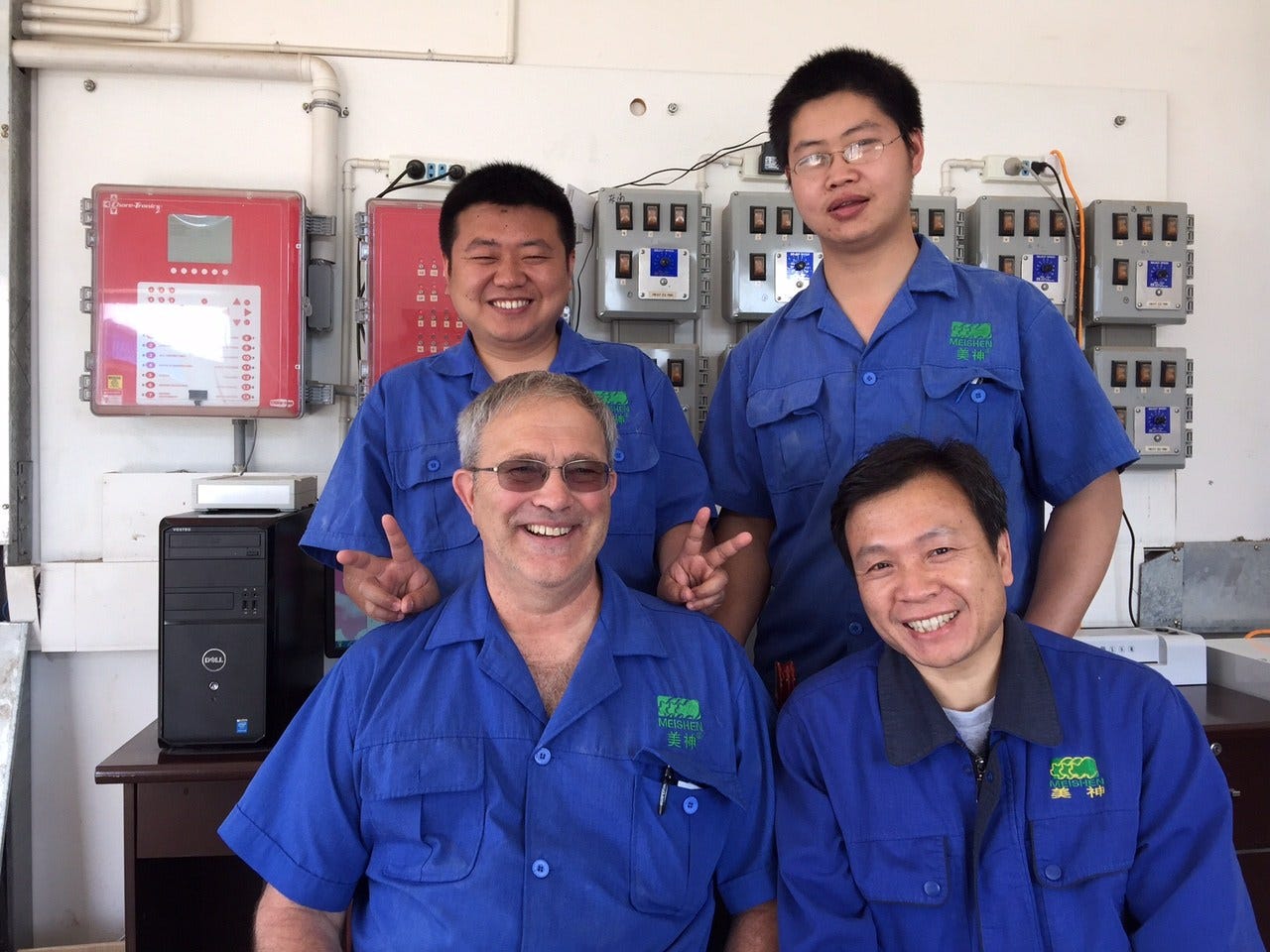Indiana Ag Company Gets Traction Training Chinese
 The company's training program brings its Chinese production managers to Indiana.
The company's training program brings its Chinese production managers to Indiana.
Subscriber Benefit
As a subscriber you can listen to articles at work, in the car, or while you work out. Subscribe NowWith five times more consumers in China than the U.S, the chief executive officer of Indiana-based Whiteshire Hamroc puts it bluntly: “that has to make your mouth water,” says Dr. Mike Lemmon. Following multiple agricultural trade missions to China, Indiana’s lieutenant governor is encouraging Hoosier agriculture companies to take a bite out of the mammoth of a market. But more than an ocean separates Indiana and Asia, and that’s why Whiteshire Hamroc is bridging cultural and technological gaps with a Chinese training program.
The biggest swine genetics company in the U.S., Albion-based Whiteshire Hamroc has been doing business in China for nearly a decade. With some 25,000 pigs on its Indiana campus, the company also boasts a sizeable international portfolio, which accounts for about 25 percent of its business; Lemmon projects that could grow to 40 percent in the next year.
“The biggest reason we’re [in China] is 51 percent of the pigs in the world are raised there, so they have a huge need for genetic improvement,” says Lemmon. “They’ve not done a good job in the past of doing that themselves; they’ve relied on importing genetic components from other countries, which is very expensive. Genetic improvement is pretty non-existent unless there’s a foreign influence on the farm.”
Lemmon says, traditionally, the Chinese version of genetic selection relies on the appearance of the pigs instead of data, and that’s borderline laughable for Whiteshire Hamroc, where information is close to religion. The high-tech operation collects and analyzes a long list of information about the thousands of pigs on its farm—such as growth rate, feed intake, amount of backfat versus lean—to produce the highest quality herds possible.
The farm has three joint ventures in China, involving a total of about 3,600 pigs. Lemmon says the partnerships center on taking Whiteshire Hamroc genetics and technology to the Asian country to “help them produce the same type of pigs in China that we would produce here.” The international effort also involves AirWorks, the company’s patented building technology that directs fresh air downward through the floor, enhancing air quality.
However, Lemmon notes a major piece of the company’s training program involves bringing its Chinese production managers to Indiana. The two-week visit allows the Chinese cohorts to see Whiteshire Hamroc’s overall system in action.
“We introduce them to the big picture to understand how everything fits together, from the testing to production, health monitoring and the actual data collection,” says Lemmon. “They can see with their own eyes what a modern genetic program is like, then take that back home and become the genetic oversight for their companies.”
Lemmon says the first trip is often “sensory overload” for the Chinese cohorts, so a second Indiana visit focuses on teaching them technical skills they can take back home.
The state’s food and agriculture innovation initiative AgriNovus Indiana is encouraging Hoosier companies to search out their niche in the Chinese market, forming mutually beneficial business relationships. The rapid emergence of China’s middle class is driving up demand for protein, and the U.S. “brand” in food quality is highly-regarded in the Asian country.
“It’s tough to compete [in China] from a cost of production standpoint, because their labor is relatively cheap compared to ours,” says Lemmon. “But it’s a huge market, and if you can position yourself with a technological advantage—and that’s what we have from a genetics and building standpoint—you have an opportunity to gain a foothold.”
From genetics to nutrition, and food safety to specialty crops, Hoosier ag leaders say Indiana has a valuable portfolio to share. While Lemmon notes working in China doesn’t lack challenges, he believes putting a little skin in the game through training can translate into business partnerships that benefit the bottom line.
Lemmon says the Chinese put more emphasis on relationships than the bottom line.
Lemmon says it takes time to surmount the cultural differences, but its young Chinese professionals are eagerly adopting Whiteshire Hamroc’s practices.
